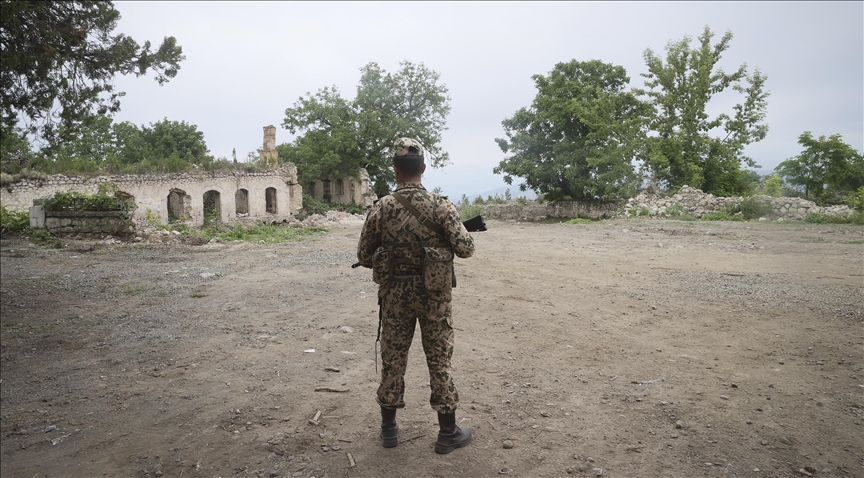MOSCOW
A lasting post-conflict settlement in the Caucasus territory of Karabakh demands work between Azerbaijan and Armenia, as no one else can solve their differences, Azerbaijan’s foreign minister said in Moscow on Friday.
Speaking at a news conference following a meeting with his Russian counterpart Sergey Lavrov, Jeyhun Bayramov stressed that respect for the obligations one has made is “the best guarantor” for restoring peace in the region.
Under a January 2021 trilateral Azerbaijan-Armenia-Russia pact in the wake of the fall 2020 Karabakh conflict, Yerevan pledged to free occupied territories in Karabakh but then refused to do so, he said.
“It is necessary to take one’s obligations seriously, to take seriously the documents that you have signed, to take seriously the documents that you have signed under international law, and this is the best guarantor,” Bayramov stressed.
On Armenia’s calls to replace the Russian peacekeeping mission with the UN or an Organization for Security and Cooperation in Europe (OSCE) mission, he said it looks like “for Armenia it doesn’t matter who, as long as there is someone.”
“And also there is an impression that this someone will come and solve everything, but this is a simplification of the question, that someone will come and will do everything for us.
“We believe that this situation and post-conflict settlement require work, first of all, on behalf of Armenia and Azerbaijan. No one will solve this problem for us … We must take our obligations seriously,” he stressed.
Lachin corridor, Armenia bowing out of meeting
About the situation in the Lachin corridor, a route connecting Armenia to Karabakh, Bayramov said that the group of nongovernmental organizations protesting there against illegal actions by Armenia is not hindering traffic along the route.
Commenting on Friday’s meeting in Moscow, which Armenia backed out of at the last minute over the Lachin corridor situation, Lavrov said “incidents” are inevitable while settling longstanding conflicts, and reconciliation will take longer if one side refuses to hold talks every time any minor incident takes place.
The way Armenia chose to inform other participants of its refusal to take part in the meeting also raises questions, he said, adding that Armenia “lost” in the sense of presenting its position.
Problems similar to the one that Armenia cited did not stop its representatives from going to summits in Europe and the US, he added.
Moscow is aware of reproaches of its peacekeeping mission, he said, adding that if there are mutual interests of all sides in its replacement, proposal should be discussed at the negotiating table.
Lavrov stressed that the current problems in the Lachin corridor may be solved through signing a peace agreement that will address all disputes.
He pointed out there were attempts to address the problem of the Lachin corridor, with an inspection organized, but Armenia did not allow it.
“Russia is probably more interested than anyone else in ensuring that a lasting, just peace is established in this region between two friendly states and any relapses of past manifestations of conflicts would be reliably excluded,” Lavrov stressed.
The two former Soviet states of Armenia and Azerbaijan fought a 44-day war in fall 2020 over Karabakh, a territory internationally recognized as part of Azerbaijan, and seven adjacent regions.
The war, which ended with a Russia-brokered peace deal, saw Azerbaijan liberate several cities and over 300 settlements and villages that had been occupied by Armenia for almost 30 years.

